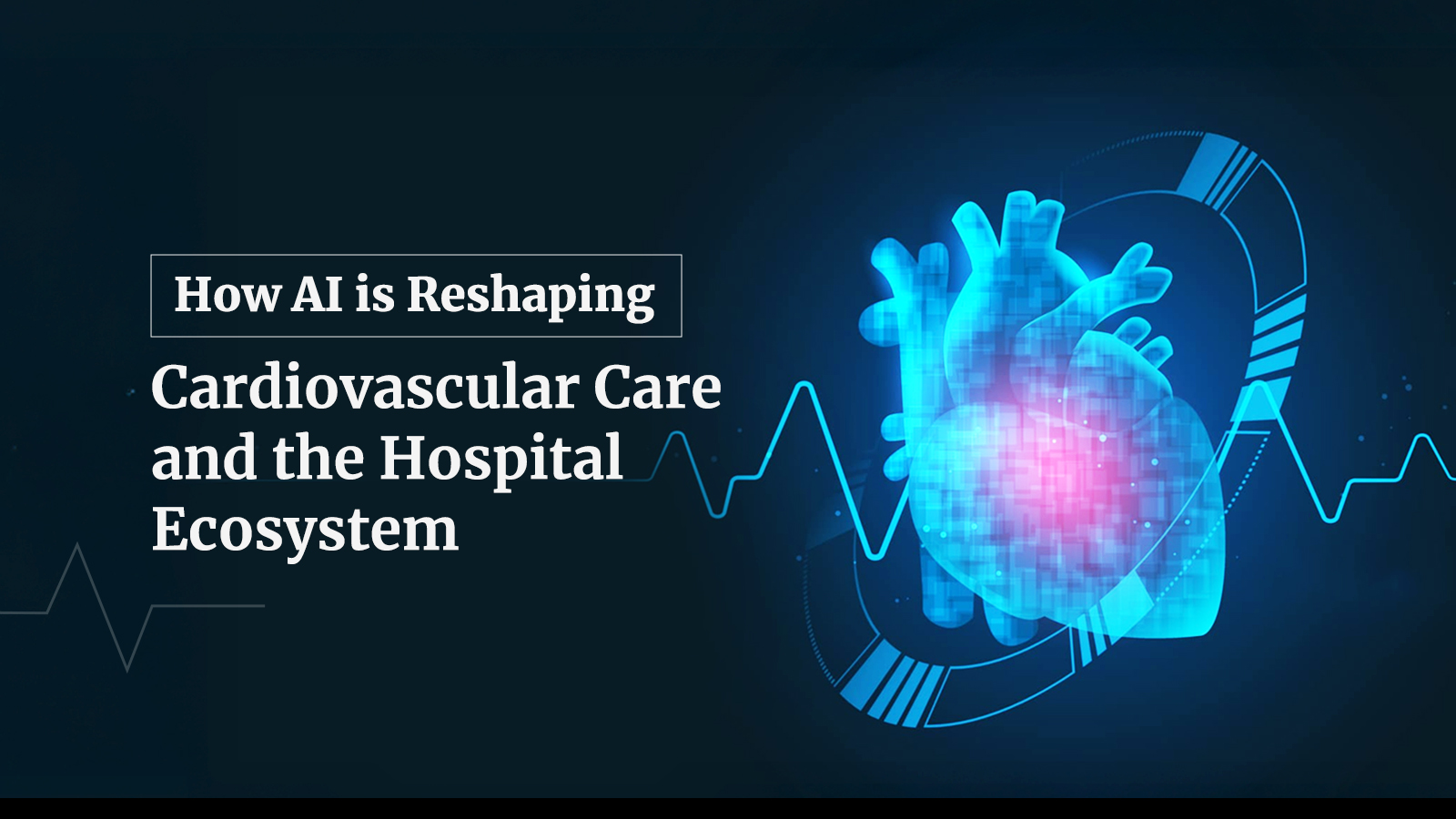Artificial Intelligence (AI) is reshaping modern medicine, and nowhere is its impact more profound than in cardiology. As one of the most data-driven medical fields, cardiology benefits immensely from AI’s ability to analyze, predict, and personalize care. From early diagnosis to precise treatment and improved patient outcomes, AI is revolutionizing how heart diseases are understood and managed. At Artema Med, we believe that the integration of AI in cardiology marks the beginning of a new era of smarter, faster, and safer cardiovascular care.
The Rising Role of AI in Cardiology
Cardiovascular diseases (CVDs) are the leading cause of death globally. Despite medical advancements, millions of lives are lost each year due to late diagnosis, human error, and lack of timely intervention. AI offers solutions to these challenges through powerful tools that enhance accuracy, efficiency, and predictive ability in cardiac care.
By processing massive datasets — including patient records, imaging scans, and genomic data — AI identifies patterns that humans may overlook. It can predict heart disease risk, assist in diagnosis, and even recommend personalized treatments. As a result, AI is not replacing cardiologists but empowering them with better insights to make data-driven decisions.
AI in Early Detection and Diagnosis
Early diagnosis is crucial in preventing fatal heart events such as heart attacks or strokes. Traditionally, cardiologists rely on tests like electrocardiograms (ECGs) and echocardiograms to detect abnormalities. However, interpreting these tests can be complex and time-consuming.
AI enhances diagnostic accuracy by analyzing ECGs and imaging data within seconds. Advanced machine learning algorithms detect minute irregularities that may indicate early-stage heart disease. For instance, AI can identify subtle ECG changes linked to atrial fibrillation or heart failure long before symptoms appear.
AI-based diagnostic tools are also used in echocardiography and CT angiography. They help detect issues like coronary artery blockage or structural heart defects with greater precision. This speed and accuracy mean patients receive the right diagnosis sooner — improving their chances of successful treatment.
AI-Powered Predictive Analytics
AI’s predictive capabilities are transforming preventive cardiology. Using patient history, lifestyle habits, and genetic information, AI models can forecast the likelihood of developing cardiovascular diseases.
These systems analyze complex datasets and create risk profiles for each individual. They assess factors such as blood pressure, cholesterol levels, age, and family history. Physicians can then use these insights to recommend lifestyle modifications or medications that prevent disease progression.
This proactive approach shifts cardiology from reactive treatment to prevention — reducing hospital admissions and improving long-term patient outcomes.
Personalized Treatment Through AI
Every patient’s heart condition is unique, and so is their response to treatment. AI enables a new level of personalized medicine in cardiology. By evaluating genetic data, lifestyle factors, and previous medical records, AI systems suggest customized treatment plans.
For example, AI can predict how a patient might respond to certain drugs, minimizing the risk of adverse reactions. It can also recommend the most effective dosage based on real-time health data.
In interventional cardiology, AI assists in planning complex procedures such as stent placement or valve repair. Predictive modeling helps surgeons anticipate complications, ensuring safer outcomes. Personalized, AI-assisted care ensures that treatments are not only effective but also tailored to each patient’s specific needs.
Revolutionizing Cardiac Imaging with AI
Cardiac imaging is a cornerstone of cardiology, and AI is taking it to the next level. Deep learning models analyze cardiac MRIs, CT scans, and ultrasounds faster than ever before.
AI algorithms can highlight abnormalities in heart structure and function, such as narrowing arteries or weakened heart muscles. They automate image segmentation, reducing the manual workload on radiologists and cardiologists.
Moreover, AI-powered imaging systems enhance diagnostic consistency. By eliminating subjective interpretation, they ensure that patients receive standardized and accurate evaluations — regardless of where they are treated.
AI in Robotic-Assisted Cardiac Surgery
AI has also entered the operating room. Robotic-assisted surgeries powered by AI are redefining precision and safety in cardiac procedures.
During complex heart surgeries, AI systems provide real-time guidance, monitor vital signs, and assist surgeons in making critical decisions. These systems can analyze data mid-surgery to adjust techniques or alert the surgical team to potential risks.
Minimally invasive robotic procedures mean smaller incisions, less pain, and faster recovery for patients. AI’s role in improving surgical accuracy directly translates to better outcomes and reduced post-operative complications.
Remote Monitoring and AI-Driven Wearables
Continuous monitoring is vital for patients with chronic heart conditions. AI-powered wearables and mobile apps now make this easier and more effective than ever before.
Devices such as smartwatches and cardiac patches track heart rate, oxygen levels, and blood pressure around the clock. AI algorithms analyze this data in real time, detecting abnormalities and alerting healthcare providers instantly.
This constant monitoring helps prevent emergencies. For instance, if an irregular rhythm or elevated heart rate is detected, the system can notify both the patient and their doctor immediately. Remote monitoring powered by AI ensures continuous care, even outside hospital walls, improving quality of life and reducing readmissions.
AI in Drug Discovery and Cardiovascular Research
Developing new heart medications traditionally takes years of research and testing. AI accelerates this process by identifying potential drug compounds faster and predicting their effectiveness.
Machine learning algorithms can simulate how different molecules interact with the human heart, identifying the most promising candidates for further testing. This saves time, reduces costs, and speeds up the delivery of life-saving drugs to patients.
In cardiovascular research, AI also helps identify new biomarkers, making it easier to diagnose diseases early and develop targeted therapies.
Enhancing Clinical Decision-Making
AI does not replace the expertise of cardiologists — it enhances it. Clinical decision support systems powered by AI provide doctors with evidence-based recommendations during consultations.
These tools analyze patient data, compare it to thousands of similar cases, and suggest possible diagnoses or treatments. This reduces the risk of oversight and ensures that every decision is informed by the latest medical evidence.
AI’s data-driven guidance helps doctors prioritize critical cases, allocate resources effectively, and deliver better care with greater confidence.
Improving Patient Outcomes
Ultimately, the goal of AI in cardiology is to improve patient outcomes — and it’s succeeding. With faster diagnosis, personalized treatment, and real-time monitoring, patients receive better care throughout their cardiac journey.
AI reduces hospital stays, prevents complications, and enhances rehabilitation through continuous feedback and monitoring. Patients become active participants in their own care, supported by intelligent systems that guide their recovery and lifestyle choices.
Challenges and Future Possibilities
While AI offers tremendous benefits, its integration into cardiology is not without challenges. Data privacy, algorithm transparency, and ethical concerns must be addressed. Ensuring that AI tools are unbiased and clinically validated is crucial for patient safety.
The future, however, looks promising. As technology evolves, AI will continue to enhance diagnostic precision, improve accessibility to cardiac care, and enable real-time collaboration between doctors and machines. Soon, AI could predict heart disease years before it occurs, completely transforming preventive medicine.
Conclusion: A Smarter, Healthier Future for Heart Care
AI in cardiology is more than just a technological trend — it’s a medical revolution. From redefining diagnosis and treatment to improving patient outcomes, AI is making heart care smarter, safer, and more personalized than ever before.
At Artema Med, we are proud to support advancements that harness AI’s potential to create a healthier future. As this innovation continues to evolve, one thing is certain: the combination of human expertise and artificial intelligence will lead to stronger hearts, longer lives, and a brighter tomorrow.

